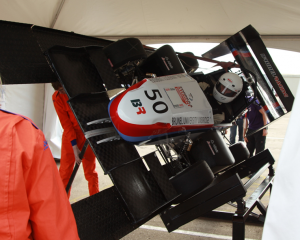


Any good design process follows a carefully chosen design ethos. For BR18, we rest our ethos on three pillars selected to maximise our point scoring ability at competition. During the design process, every decision made is driven by this ethos and dictates the final product. These pillars are reliability, simplicity and credibility and encapsulate Brunel Racing’s Formula Student vision.
Building a reliable car will quite simply allow us to compete in and complete every event. Many teams struggle to pass scrutineering and even fewer complete the endurance event which carries 300 points and a further 100 points up for grabs in the efficiency event for the teams that complete endurance. This constitutes 59% of the dynamic points with 18 of the top 20 teams at the 2016 UK event completing endurance. The 2 teams that did not complete endurance scored very highly in all other events. It is Brunel Racing’s aim to score well in every event by producing an all-round performing and reliable vehicle.
As a team, we have learnt from all our previous Formula Student entries and the research contributing to every vehicle. Failure and unpredictability has historically troubled teams who have attempted to create complex solutions to problems without dedicating the research and resources required to ensure reliability. This is why simplicity is a key factor in all our designs, allowing us to build quicker, test earlier and snap up points in the static events. Simplicity over complexity often reduces costs, encourages innovation and makes the vehicle easier to use, maintain and adjust. Low costs score high in the cost event, innovation scores high in the design event and ease of use, maintenance and marketability score high in the business event. These static events are often overlooked by teams but contribute 48% of the overall competition points.
Credibility is defined as the cars ability to fit into its market place. For this, we look at factoring in what we have learnt from previous years and building something fit for purpose without over engineering. This is why many of our designs are simply developed from previous work that has performed well at competition, with our research chosen to produce an improved iteration. We benchmark our previous vehicles at the start of every year and seek to improve year on year, ensuring that our credible designs contribute points in all events.
Formula Student is all about gaining points, making a points driven strategy essential for achieving the best outcome at competition. By embracing this design ethos, Brunel Racing hopes to achieve points in areas that we have previously struggled, and we are confident that this strategy will help us achieve our Formula Student targets.
Luke Waldron
Team Principal – Design
Unsprung Manager
